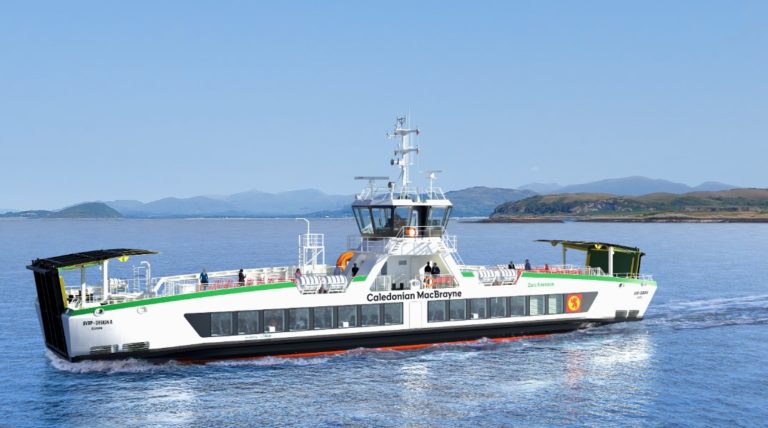CMAL, Remontowa sign shipbuilding contract for electric ferry fleet
Scotland Orders Seven New Electric Ferries

Scotland’s Caledonian Maritime Assets Limited (CMAL) has officially contracted Polish shipbuilder Remontowa Shipbuilding to construct seven Loch-class electric ferries. This significant development comes as part of the “Small Vessel Replacement Program” initiated in 2021, aimed at enhancing the resilience of the Clyde and Hebrides ferry fleet. The first of these new vessels is expected to be delivered by 2027, marking a pivotal step in modernizing Scotland’s maritime transport.
Investment and Future Plans
The contract, valued at £147.5 million, is part of a broader £160 million investment from the Scottish Government to support the Small Vessel Replacement Program. This initiative not only aims to replace aging vessels but also to bolster the ferry services that connect island communities across Scotland. In addition to the seven electric ferries being constructed in this initial phase, three more vessels are planned for future procurement through a separate tender process later this year.
Fiona Hyslop, Cabinet Secretary for Transport, emphasized the importance of this contract, stating that it represents a significant advancement in the government’s efforts to improve ferry services. She noted that these new electric ferries, along with six major vessels set to join the fleet in the coming years, will contribute to renewing approximately one-third of CalMac’s entire fleet. CMAL’s Chief Executive, Kevin Hobbs, echoed this sentiment, highlighting the ambitious goal of replacing up to 16 vessels within the next six years.
Remontowa Shipbuilding has a proven track record, having previously delivered vessels such as the MV Finlaggan, MV Bute, and MV Argyle. Michał Jaguszewski, Director of Commerce at Remontowa, expressed confidence in the partnership with CMAL and LMG Marin, the ship design firm, to deliver high-quality ferries that will enhance community resilience and reduce emissions. As CMAL moves forward, detailed designs for the new vessels will be developed in collaboration with the shipyard.
Community Impact and Environmental Benefits
The introduction of these electric ferries is expected to significantly benefit island communities by providing reliable and environmentally friendly transportation options. The shift towards electric vessels aligns with broader goals of reducing carbon emissions and promoting sustainable practices within Scotland’s maritime industry. The investment in new technology not only aims to improve service efficiency but also to ensure that ferry operations are more resilient to future challenges.
As the project progresses, CMAL will work closely with Remontowa to finalize the designs and prepare for the construction phase. This initiative is part of a larger strategy to rejuvenate Scotland’s ferry fleet and infrastructure, ensuring that vital connections between the mainland and islands are maintained and enhanced for years to come.
